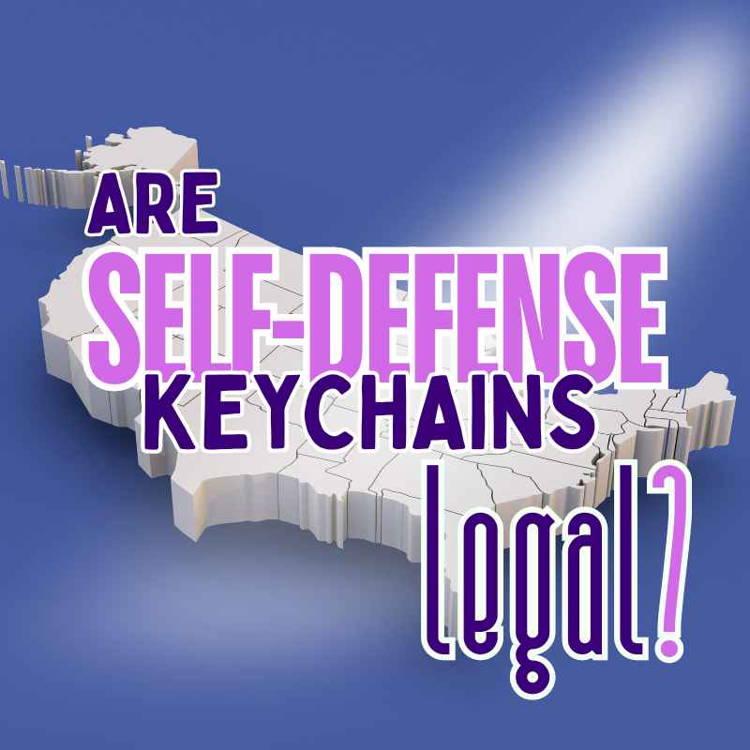Table of Contents
- Key Legal Definitions and Classifications of Keychain and Spray Canister Devices
- Regulatory Restrictions and Compliance Requirements for Carrying Self-Defense Items
- Assessing the Impact of Local and Federal Laws on Usage and Ownership
- Practical Guidelines for Choosing and Using Keychain and Spray Canisters Legally
- Wrapping Up
Key Legal Definitions and Classifications of Keychain and Spray Canister Devices
Understanding the legal nuances surrounding keychain devices and spray canisters is crucial for both consumers and manufacturers. Keychains are typically classified under personal accessories, provided they serve utilitarian or decorative purposes without containing any restricted substances. Legally, their form and function often exempt them from stringent regulations unless designed to deliver chemical agents. Conversely, spray canisters are subject to explicit controls due to their potential to contain irritants, self-defense chemicals, or hazardous materials. Jurisdictions commonly categorize spray canisters based on their intended use, chemical composition, and delivery mechanism, which directly impacts possession, sale, and transportation laws.
Legal codes frequently introduce specific terminologies and classifications to avoid ambiguity. For example, spray canisters might be divided into:
- Defensive Spray Devices – Intended explicitly for personal protection and regulated strictly.
- Industrial Use Canisters – Used for commercial purposes like cleaning or pest control, often with fewer restrictions.
- Cosmetic Sprays – Products without hazardous agents, enjoying broader legal leeway.
Regulatory Restrictions and Compliance Requirements for Carrying Self-Defense Items
When it comes to carrying self-defense items, legal frameworks fluctuate drastically depending on your location. For instance, keychain weapons-such as kubotans or tactical keychains-are often viewed through a grey legal area. While these items appear innocuous, some jurisdictions classify them as concealed weapons, potentially subjecting owners to strict regulations or outright bans. It’s crucial to understand that local laws may regulate the materials (e.g., metal vs. plastic), size, and intended use of these items. A key factor is whether the item is considered a weapon or a common accessory, which can vary based on law enforcement interpretation and court precedents.
In contrast, spray canisters, particularly pepper spray or mace, typically have more clearly defined legal parameters. These often include age restrictions, possession limits, and sometimes explicit bans on carrying them in certain locations like airports or government buildings. Many regions require individuals to obtain permits or register their spray canisters, emphasizing the importance of compliance to avoid hefty fines or criminal charges. A practical checklist for ensuring compliance includes:
- Verify the legality of the item in your state or country
- Check whether a permit or registration is required
- Understand restrictions on transport and use in public spaces
- Stay updated on any recent legislative changes
Assessing the Impact of Local and Federal Laws on Usage and Ownership
When it comes to legal considerations, local and federal regulations create distinct boundaries for keychains and spray canisters that users must navigate carefully. Many jurisdictions classify spray canisters-especially those designed for self-defense-as restricted items, often requiring specific permits or imposing outright bans on their possession and use. Conversely, keychains, frequently regarded as everyday accessories, typically face fewer legal constraints. This differentiation is crucial because improper usage or possession of spray canisters can lead to severe penalties, including fines or criminal charges. Understanding these variances helps owners comply with the law while maximizing personal safety.
Specific points to keep in mind include:
- Age restrictions: Federal laws may mandate minimum age requirements for purchasing or owning spray canisters.
- Usage limitations: Many states prohibit using spray canisters except in clear self-defense scenarios.
- Transport and storage rules: Certain regions regulate how and where canisters can be carried or stored.
- Prohibited locations: Federal buildings, schools, and airports often have stringent bans on spray canisters.
By staying informed about these legal frameworks and consulting local statutes regularly, individuals can avoid inadvertent violations and better protect themselves within the bounds of the law.
Practical Guidelines for Choosing and Using Keychain and Spray Canisters Legally
When selecting keychains and spray canisters, it’s essential to consider their intended legal use and local regulations. Many jurisdictions have specific rules governing the possession, transport, and use of these items, especially those related to self-defense or crowd control. Always verify that the item you choose complies with regional laws, such as restrictions on types of sprays (e.g., pepper spray vs. mace) and the allowed quantities in public or private spaces. Additionally, keychain items that double as defensive tools may fall into regulated categories, so thorough research and understanding the legal framework can prevent inadvertent violations.
Here are some practical steps to ensure compliance:
- Check Local Legislation: Review your city or state laws regarding permissible types and sizes of canisters and keychain tools.
- Purchase from Reputable Vendors: Choose products that adhere to legal standards and come with clear labeling and safety instructions.
- Utilize Responsible Storage: Keep spray canisters and keychain tools in secure, accessible places that prevent accidental discharge.
- Training and Usage: Familiarize yourself with correct handling to avoid legal issues resulting from misuse or accidental injury.
Wrapping Up
In the ever-evolving landscape of self-defense and personal safety, understanding the legal distinctions between keychain and spray canisters is crucial. While both offer convenience and protection, their varying regulations can significantly impact how and where they can be carried and used. By staying informed and compliant with local laws, you ensure not only your safety but also peace of mind. Whether you opt for the compact practicality of a keychain or the robust capacity of a spray canister, make sure your choice aligns with legal standards and personal needs. Stay safe, stay informed, and protect yourself responsibly.Check Our Other Blogs
- StunGun – Your Trusted Source for Stun Guns, Laws, and Self-Defense Tips
- PepperSprayLaws – Your Trusted Resource for Pepper Spray Information
- StunGunLaws – Your Trusted Guide to Stun Gun Legality and Safety




